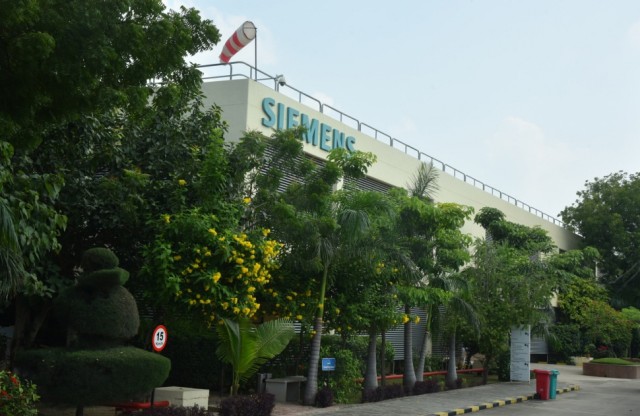Smart water management in Vadodara
Managing water risks
At the Siemens site in Vadodara, 650 employees manufacture steam turbines and capacitors for the Indian market and other growing markets. Here, the employees thought long and hard about water management – what with the monsoon season in the summer months and the dry weather during the remaining seasons. During monsoon season – June to September – 100 millimeters of rain can fall within an hour. This can be compared to the average annual rainfall of 780 millimeters.
The scarcity of water during the dry season puts the groundwater in this region in jeopardy, as more water is pumped up than can be replenished by rainfall. This makes managing water risks in this region a challenge – a challenge that the employees at the Vadodara plant have taken on in various respects.
Valuable rainwater
Most of the water from the monsoon ends up wasted in the community’s sewage system, however water during the dry season is very scarce. This gave the employees in Vadodara an idea: Since 2013, rainwater that used to end up in the sewers has instead been collected and fed back into the groundwater.
The rainwater is collected in four wells, each of which is 40 meters deep and has a capacity of 10,000 liters. They are hidden underneath the lawn on the company’s site. The catchment area of each cistern encompasses between 2,240 und 6,000 square meters. Each year, 20,000 cubic meters of rainwater are collected. From 2013 to the present the four groundwater wells have collected more than 23 million liters of rainwater altogether and transferred it back to the groundwater. As a result, the Siemens site is promoting the conservation of the region’s water resources.
Water recycling system
Not only the rainwater is fed back to the groundwater, but also the water used by the site in production and in sanitary facilities.
Instead of being discharged into the sewers, the water is piped to the site’s two water treatment plants for cleaning. In the treatment plant for industrial wastewater, 85,000 liters can be cleaned. After cleaning, the water is used in the sanitary facilities. The treatment plant for sanitary wastewater has a capacity of 65,000 liters. After the treatment process, the water is so clean that it can be used to water the green spaces located on the site. Thus, the vegetation is supported during the dry season, the water is recycled and not a drop is wasted.
I think a lot of work has been done, and I would like to thank [my team] personally. It is a very difficult topic, but we have sustainably driven it.” Navin Dewaji, Head of the business segment at the Vadodara Siemens site
Taking social responsibility
The treated wastewater and its usage allow the possibility for many different plants to be cultivated right on site. Saplings are also distributed to employees as well as neighbors on special occasions.
The trees and other plants provide a habitat for all kinds of insects and birds and improve the microclimate for humans and nature.
Management and employees are proud of the water management at their site, especially given the numerous benefits that come out of it. The company is now more independent from the public water supply, and employees and residents benefit from the green oasis, as do the animals that have found a habitat here. The groundwater supply and the environment benefit, as the rain that falls on this site is returned to the groundwater. The employees’ active engagement has led to a win-win situation for all involved.
To know more, please check Siemens.


